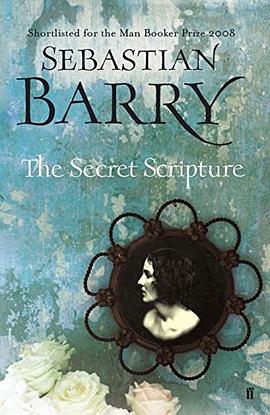The Secret Scripture
内容简介
The acclaim that has greeted Sebastian Barry’s The Secret Scripture is varied and enthusiastic, and it's not hard to see why. When Frank McGuiness praised it for ‘raw, rough beauty’ and described Sebastian Barry's fiction as ‘unique’ and ‘magnificent’, this claim was no hostage to fortune; just a few sentences of the prose here will convince most readers of the justice of those words. As in the best-selling A Long Long Way, Barry is concerned with the imperatives of telling a story, but in a literary form that is rich with both psychological understanding and a skilful conjuring of time and place.
Roseanne McNulty may (or may not) be on the point of nearing her 100th birthday -- but there is little certainty about this fact. In her twilight years, her destiny is uncertain, as the Roscommon Mental Hospital -- her home for so many years of her life -- is on the point of closing. As the fateful hour approaches, Roseanne spends her time of talking to her psychiatrist of many years, Dr Grene. The relationship between the two is strangely interdependent, and the doctor is also attempting to come to terms with the death of his wife. As we learn more about the two principal protagonists, we are presented with a rich and subtle picture of human relationships -- and the (often unintentional) damages that we all do to each other.
The form of the book consists of the separate journals of Roseanne and Dr Grene, and we gradually learn about Roseanne’s family in Sligo in the 1930s. What emergence is a poignant personal history; it is also a subtly ambitious picture of nothing less than the Irish psyche at a particular point in its history. There are echoes here of another great Irish chronicler of the human condition, William Trevor, and The Secret Scripture is no worse for that. --Barry Forshaw
Review
A subtle study of psychology, religion, family and politics in Ireland.This is not, as the title might suggest, another Da Vinci Code clone. Barry (A Long Long Way, 2005, etc.) writes vigorously and passionately about his native land. The story is told antiphonally, alternating narratives between a secret journal (hidden beneath the floorboard) kept by Roseanne McNulty, a patient in a mental hospital, and the "Commonplace Book" of her psychiatrist Dr. Grene, who's dealing with serious issues of grief after the death of his wife. Roseanne has always been something of an outsider, her father a cemetery-keeper and rat-catcher but most importantly a Protestant in a land largely hostile to this religious orientation. Although Roseanne remembers a happy childhood, in which she was the proverbial apple of her father's eye, he becomes involved in the political and military entanglements of Irish political life. When Roseanne grows up, she becomes the wife of Tom McNulty, but through a series of misunderstandings - as well as through the machinations of the grim-faced and soul-destroying priest, Fr. Gaunt - she is as good as accused (though falsely) of adultery with the son of a political rebel. Out of malice toward Protestants as well as out of a misplaced moral absolutism, Fr. Gaunt has her marriage annulled - and, using nymphomania to explain her "condition," has her locked up in the asylum. Dr. Grene gets interested in her story as well as her history, and in tracking down her past he finds a secret that she has kept hidden for many years, a secret that affects them both and that intertwines their families. In a final assessment of Roseanne - after she's spent decades in the asylum - Dr. Grene determines that she is "blameless." She responds: "'Blameless? I hardly think that is given to any mortal being.'" Indeed, blamelessness is a state no one achieves in this novel.Barry beautifully braids together the convoluted threads of his narrative. (Kirkus Reviews)
......(更多)
作者简介
塞巴斯蒂安‧巴里是爱尔兰当代最优秀的作家、诗人与剧作家之一,爱尔兰影星琼‧奥哈拉之子。其文学生涯始于诗歌,近年来,小说创作上的成就为其赢得了极高的文学地位,其作品多次获得布克奖提名,长篇小说《绝密手稿》获包括科斯塔年度图书奖在内的多项文学大奖。巴里的小说语言优美,富有诗意,善用深沉忧郁的历史视角探究爱尔兰与爱尔兰人充满悲欢离合的曲折命运。
......(更多)
目录
......(更多)
读书文摘
历史并非真实时间按照正确次序进行的规矩排列,而是在悲凉的现实面前高举着的猎猎旌旗,上面描绘着臆想与揣度的绮丽组合,变幻莫测。
一个人如果在灾难深重,孤立无援之际,还能使自己快乐起来,那他就是真正的英雄。
......(更多)






